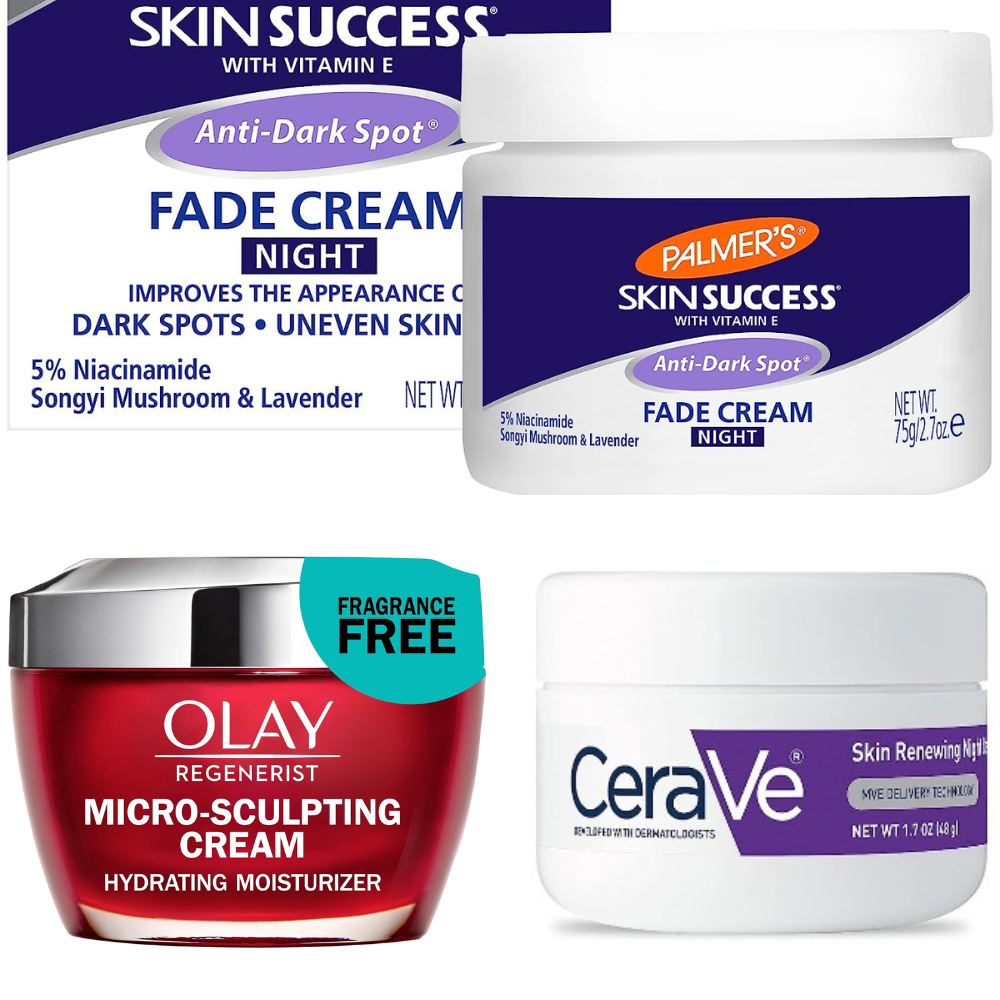Key Takeaways:
- Understanding Niacinamide: Learn when and how to incorporate this powerful ingredient into your skincare routine for maximum benefits.
- Skin Compatibility: Discover how niacinamide caters to various skin types, from oily to sensitive, and addresses a multitude of skin concerns.
- Combination with Other Ingredients: Gain insights into combining niacinamide with other skincare ingredients for enhanced skin health and a youthful glow.
Niacinamide, a form of vitamin B3, has become a buzzword in the world of skincare—and for good reason. This versatile ingredient offers a plethora of benefits for the skin, from improving skin texture to bolstering the skin's barrier function. But with the myriad of skincare products and ingredients available, it's crucial to know when to use niacinamide to reap its full benefits. This article will guide you through the optimal use of niacinamide in your skincare regime.
The Basics of Niacinamide
Niacinamide is a water-soluble vitamin that works with the natural substances in your skin to help visibly improve enlarged pores, uneven skin tone, fine lines, and dullness. It's known for its anti-inflammatory properties, making it a go-to for those with sensitive or inflamed skin. But its benefits don't stop there; niacinamide also helps to regulate sebum production, which can prevent acne and keep oily skin in check.
Identifying the Right Time for Niacinamide
When to incorporate niacinamide into your skincare routine depends on several factors, including your skin type, existing routine, and the specific skin concerns you're addressing. Generally, niacinamide can be used twice daily and is suitable for morning and evening use. It's gentle enough for daily use and can be applied under sunscreen to protect against the harmful effects of UV rays.
Niacinamide for Different Skin Types
Whether you have dry, oily, combination, or sensitive skin, niacinamide can be a beneficial addition to your skincare arsenal. For oily skin, niacinamide helps to regulate sebum production, while for dry skin, it aids in retaining moisture and preventing moisture loss. Those with sensitive skin will appreciate niacinamide's anti-inflammatory effects, which help to reduce redness and soothe irritated skin.
Addressing Skin Concerns with Niacinamide
Niacinamide is a multitasker that tackles a range of skin issues. It's effective in reducing the appearance of fine lines and wrinkles, promoting a more even skin tone, and improving skin texture. Additionally, its ability to boost ceramide production strengthens the skin barrier, protecting against environmental aggressors and reducing the impact of environmental factors on the skin.
Combining Niacinamide with Other Ingredients
One of the great things about niacinamide is its compatibility with other skincare ingredients. It pairs well with hyaluronic acid, salicylic acid, and even retinol. However, caution should be taken when using niacinamide with vitamin C products, as combining them can sometimes reduce their effectiveness. A patch test is recommended when introducing niacinamide into a routine with other active ingredients.
Niacinamide in Your Morning Routine
In the morning, after cleansing, niacinamide can be applied to damp skin to help retain moisture throughout the day. It's an excellent primer for makeup or can be followed by a daily moisturizer with SPF to protect against sun exposure. Niacinamide's ability to protect the skin from UV rays makes it an essential part of the morning skincare routine.
Niacinamide in Your Evening Routine
At night, niacinamide works to repair the skin from daily stressors. It can be used after cleansing and before applying heavier creams or oils. For those using retinol, niacinamide can help to mitigate skin irritation commonly associated with retinol use. Apply niacinamide before retinol to buffer the potential irritation and to maintain skin hydrated and healthy.
Niacinamide's Role in Managing Combination Skin
Have you ever felt like your skin can't decide whether it's dry or oily? That's the hallmark of combination skin, and it can be a real puzzle to manage. Enter niacinamide, a skincare ingredient that's as versatile as it gets. This water-soluble vitamin, also known as vitamin B3, is a maestro at multitasking. It helps to maintain the skin's barrier function, which is crucial for keeping the oily areas in check while simultaneously hydrating the dry patches. This balancing act is what makes niacinamide serum a go-to for those with combination skin.
But how exactly does niacinamide work its magic on combination skin? It's all about its anti-inflammatory properties and its ability to regulate sebum production. By calming down inflammation, niacinamide can help reduce the appearance of clogged pores and acne-prone skin, which are often concerns in the oilier zones of combination skin. Meanwhile, its ability to support the skin's barrier function means it helps prevent water loss, keeping those dry areas from feeling like a desert. It's a win-win situation for anyone struggling to keep their combination skin healthy and happy. Niacinamide's Interaction with Fatty Acids and Skin Barrier Function Have you ever wondered how niacinamide, a water-soluble vitamin B, works in tandem with fatty acids to enhance your skin's barrier function? This dynamic duo is like a superhero team for your skin. Fatty acids are key components in the lipid layer of the skin, which is crucial for maintaining moisture and protecting against environmental aggressors. When niacinamide enters the picture, it helps to reinforce this barrier, ensuring that your skin retains its natural hydration and resilience against irritants.
Moreover, the anti-inflammatory properties of niacinamide make it an excellent ally for those with skin dry or sensitive conditions. By calming inflammation and working alongside fatty acids, niacinamide helps to soothe and heal the skin's surface. This teamwork not only improves the skin's appearance but also its overall health. So, when you're looking for a skincare product that supports a strong and healthy barrier, consider one that combines niacinamide with essential fatty acids for that extra boost of protection and care.
The Benefits of a Water-Soluble B Vitamin in Skincare Niacinamide, being a water-soluble form of vitamin B, offers a unique advantage in skincare formulations. Unlike oil-soluble vitamins, niacinamide can easily penetrate the upper layers of the skin without leaving any greasy residue. This makes it an ideal ingredient for those who struggle with skin dryness but dislike the heavy feeling of oil-based products. Its compatibility with various skin types and conditions means that niacinamide can deliver its benefits widely, without contributing to excess oiliness or breakouts.
The anti-inflammatory effects of this B vitamin are not to be underestimated. Niacinamide's ability to reduce inflammation is a godsend for those dealing with acne, rosacea, or any skin condition where redness and irritation are present. By incorporating niacinamide into your skincare routine, you're not just addressing surface-level concerns; you're also providing your skin with the nutrients it needs to function optimally. And when combined with other active ingredients niacinamide can enhance their efficacy, making it a versatile and valuable addition to any skincare product.
The Synergy of Niacinamide with Other Active Ingredients
When it comes to skincare, niacinamide plays well with others. It's like the friendly neighbor of skincare ingredients, getting along with a variety of other activities. For instance, combining retinol niacinamide in your skincare routine can yield impressive results. Retinol, known for its anti-aging prowess, works even better when paired with niacinamide's skin barrier-strengthening abilities. This dynamic duo can help reduce the appearance of fine lines and wrinkles while keeping the skin hydrated and less irritated, thanks to niacinamide's anti-inflammatory effects.
But what about mixing niacinamide with alpha hydroxy acids (AHAs) or both vitamin C (ascorbic acid) and niacinamide? While old-school advice might have warned against such combinations, modern formulations have made it possible to enjoy the benefits of niacinamide alongside these potent ingredients. AHAs, like glycolic acid, help to exfoliate dead skin cells, revealing brighter skin beneath. Niacinamide can then work to soothe and rebuild the fresh skin's barrier. As for vitamin C, it's an antioxidant powerhouse, and when used with a niacinamide booster, it can help protect the skin against environmental stressors while niacinamide keeps the skin's barrier robust. Just remember to pay attention to product pH levels and use them at different times of the day if necessary, to ensure maximum efficacy and skin compatibility.
The Role of Niacinamide in Exfoliation
Niacinamide isn't an exfoliant, but it complements the use of exfoliating acids like glycolic acid and beta-hydroxy acid. It helps to soothe the skin and maintain a healthy skin barrier, which can be compromised by over-exfoliation. When using chemical exfoliants, niacinamide can be applied afterward to help soothe and hydrate the skin.
Niacinamide Serums vs. Boosters
Niacinamide is available in various forms, including serums and boosters. Serums are typically more concentrated and can be used alone or added to your favorite moisturizer. Boosters are designed to be mixed with other skincare products to enhance their benefits. Both forms are effective, and the choice depends on personal preference and the specific needs of your skincare routine.
Preventing Acne with Niacinamide
For acne-prone skin, niacinamide is a valuable ingredient. It helps to prevent acne by regulating oil production and keeping pores clear of clogged debris. Additionally, its anti-inflammatory properties can reduce the severity of acne breakouts and promote a clearer, more balanced complexion.
Niacinamide for Anti-Aging
Niacinamide's ability to stimulate collagen production makes it a powerful anti-aging ingredient. It helps to improve skin elasticity and reduce the appearance of fine lines and wrinkles, contributing to a more youthful glow. Incorporating niacinamide into your skincare regime can help to slow down the signs of aging and maintain healthy skin.
How to Perform a Patch Test with Niacinamide
Before fully incorporating niacinamide into your skincare routine, it's important to perform a patch test to ensure you don't experience any adverse reactions. Apply a small amount of the niacinamide product to a discreet area of the skin and wait 24 hours to observe any signs of irritation or allergic reaction.
Niacinamide and Cosmetic Dermatology
In the realm of cosmetic dermatology, niacinamide is recognized for its skin-rejuvenating properties. It's often included in professional treatments and recommended by dermatologists for its ability to improve skin health and address a variety of skin concerns.
Final Thoughts on When to Use Niacinamide
Niacinamide is a versatile and beneficial ingredient that can be used at any time of day and is suitable for most skin types. It's important to consider your skin concerns and the other ingredients in your skincare routine when deciding when to use niacinamide. With its wide range of skin benefits, niacinamide is a valuable addition to any skincare regime.


Can niacinamide be used with other active ingredients?
Yes, niacinamide can be used with other active ingredients like hyaluronic acid, salicylic acid, and retinol. However, it's important to be cautious when combining it with vitamin C products and to perform a patch test when introducing it to your routine.
How often can niacinamide be used?
Niacinamide can be used twice daily, in the morning and evening. It's gentle enough for daily use and can be applied under sunscreen during the day or in combination with other skincare products at night.
Is niacinamide suitable for all skin types?
Niacinamide is generally suitable for all skin types, including oily, dry, combination, and sensitive skin. It's known for its anti-inflammatory properties and ability to regulate sebum production, making it versatile for various skin concerns.

Niacinamide is a skincare powerhouse suitable for use at any time of day and for most skin types. It offers a multitude of benefits, including improving skin texture, strengthening the skin barrier, and regulating oil production. When incorporating niacinamide into your skincare routine, consider your skin concerns, perform a patch test, and be mindful of how it interacts with other skincare ingredients. With its ability to address various skin issues and enhance overall skin health, niacinamide is an ingredient worth including in your skincare arsenal.













